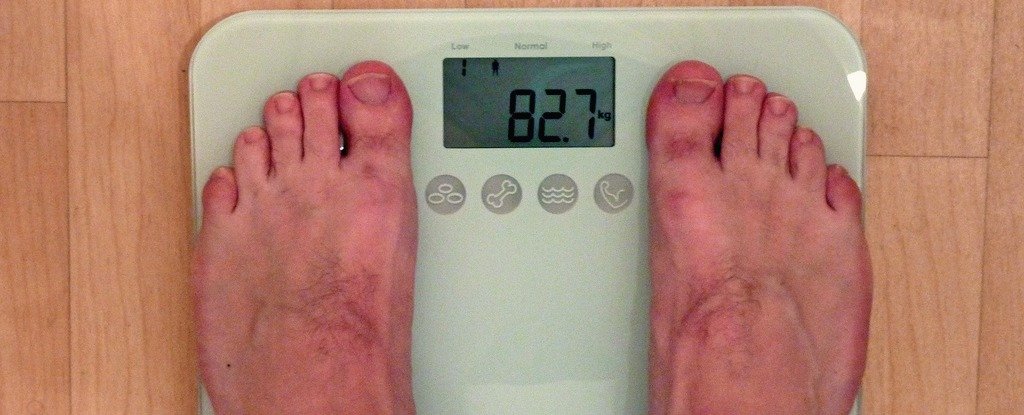The Biology of Middle-Age Spread
"As we get older, biology sets us up for weight gain."
"By the age of 50, we could be burning nearly 400 fewer calories a day. If you're still eating the same amount of food as when you were 20, you'll gain weight."
"Bodies like to put on weight, but they don't like to lose it. A diet only works if you stay on it for the rest of your life. That's difficult since most diets are restrictive."
"[Government fails to recognize obesity as a chronic disease.] This would increase access to behavioural therapy and medications for obesity. Most health plans don't cover those things."
Arya Sharma, professor of medicine, University of Alberta, director, Obesity Canada
"Studies show that post-menopausal women store more fat."
"We also see that with a chronic decrease in testosterone, which occurs during andropause or male menopause, men also have an increase in body fat."
"[Monitoring weight can help maintain weight] or at least not gain too much."
"[Exercise alone seldom results in weight loss.] You need the dietary component."
Sylvia Santosa, professor, Department of Health, Kinesiology and Applied Physiology, Concordia University
 |
There are health risks associated with failing to acknowledge what is familiarly referred to as "middle age spread". This, despite the very real scientific medical fact that among the 57 known comorbidities associated with obesity which include cancer, Type 2 diabetes, cardiovascular disease and dementia, ignoring the trigger that hastens the onset of these diseases, doesn't much help in tackling this problem of enormous proportions.
In Canada, the median age is a steady 41 in the population. At the same time obesity rates have been rising, and most particularly among people between the ages of 35 to 49. After age twenty the body begins to burn ten to fifteen fewer calories every single day. This is the impact of age on metabolism in the human body. And then there are hormones. Testosterone, the male sex hormone, manages a decrease in body fat, while the female sex hormone estrogen prevents weight gain as well.
 |
Their positive weight effect, however, decreases with age. A decrease in estrogen leads women to gain weight on their hips and thighs, while a like decrease in testosterone causes weight gain in men, particularly around the stomach area. And while preventing weight gain with the use of hormone replacement therapy is an option in middle age, it is controversial therapy, given possible links to cardiovascular disease.
As a result of hormonal fluctuations that women experience, they are more likely to gain weight throughout their lifetimes. Dr. Sharma is a firm believer in behavioural measures, in medications and for some extreme cases, bariatric surgery for long-term effectiveness in the treatment of obesity. Last year, Canada banned the use of industrial transfats in processed foods. It became illegal for manufacturers to add PHOs -- partially hydrogenated oils -- to foods sold in Canada.
A federal government campaign through Let's Get Moving, a policy document was designed to inform Canadians of a need to move more frequently in view of the fact that only 18 percent of Canadian adults meet the guidelines for physical activity of 150 minutes of moderate-to-vigorous activity weekly. Dr. Sharma feels more is needed to motivate people to take command of their options in avoiding obesity.
 |
Habits ideally, should be changed from those inimical to health to those with clear benefits such as eating nutritionally, sleeping adequately, maintaining a healthy weight, smoke cessation, moderate drinking and reducing sedentary time, to produce a good-habit-routine to live by. These, in combination with regular exercise, relate to healthy lifestyle behaviours.
An article in the BMJ Open Sport and Exercise Medicine open-access journal saw lifestyle reviews of statistics accumulated for 34,061 individuals participating in the Vitality program, an interactive online wellness platform, incentivizing health choices such as exercise, medical checks, sleep, healthy food choices and activities geared to stress-reduction.
"The improvements were greatest in those with the most to gain, those with low baseline physical activity levels."
"Our study extends previous findings that health behaviours such as physical activity, healthy eating and abstaining from alcohol and smoking tend to co-occur in individuals and the presence of one healthy behaviour is followed by other healthy behaviours."
Vitality health research team
 |
| Exercise after50 Global News |
Labels: Aging, Biology, Exercise, Health, Nutrition, Sleep, Weight

0 Comments:
Post a Comment
<< Home